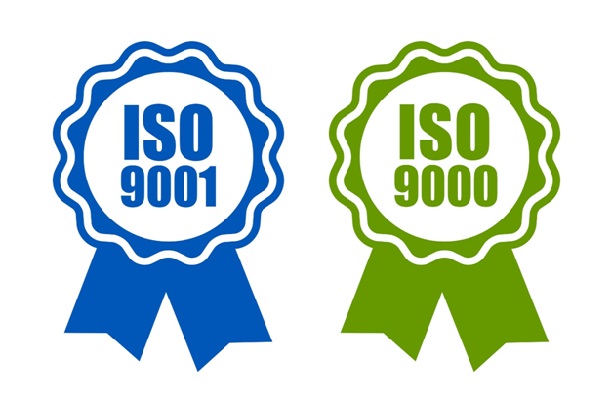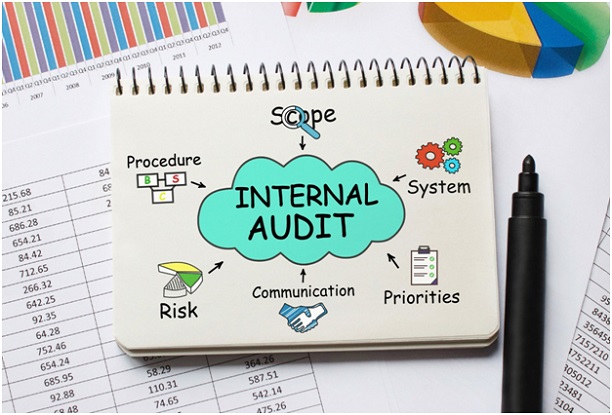The difference between ISO 9000 and ISO 9001 is very simple. While ISO 9000 is technically an entire family of standards, inclusive of ISO 9001, there is an additional standard called ISO 9000 that defines all of the terminology used within the category.
Contents
When it comes to owning and operating a business, ISO 9001 certification is usually something that is very sought after. With this stamp of approval, so to speak, it is confirmed that your company upholds and maintains a certain quality standard. However, not many people are as well-versed in ISO 9000.

ISO 9000 can be defined in two separate ways, because it is technically two separate things. The first definition of ISO 9000 is an entire family of standards.
To be more specific, ISO 9000 holds a series of individual standards underneath it, which includes ISO 9001.
However, the ISO 9000 family also includes an individual standard called ISO 9000. This standard is much different from what you might have heard about ISO 9001, though.
ISO 9000 is essentially a collection of vocabulary and definitions for the entire quality management series.
The main purpose of ISO 9000 is essentially to define the terminology that exists throughout the rest of the standards. As you keep reading, you will find out that ISO 9001 is almost the opposite.
While it is true that ISO 9000 can be a confusing topic to those who have not educated themselves on it, the same thing can go for the ISO 9001 standard that is more well-known.
Although ISO 9001 is recognized globally, and a lot of businesses are certified with the quality management system, it is not as simple as it might sound.
In fact, the ISO 9001 standard defines a series of clauses and regulations, but it does not very clearly outline how a business owner can go about actually implementing these regulations into the business.
Let’s take a look at what exactly ISO 9001 is. Refer to the list down below to get a general idea of what you might be missing.
ISO 9001 is an individual standard within the larger category of the ISO 9000 family, but it is different than the ISO 9000 standard itself.
This is due to the fact that ISO 9001 is consistent of specific requirements for a company. This is what the personnel of a business will use to stay within the lines of the quality management system.
ISO 9001 certification has become a staple in all kinds of businesses all around the world, regardless of the personnel size or the industry in question. This is due to the fact that business owners, employees, management, and customers all benefit from the well-oiled machine that is a certified business.

For ISO 9001 certification and implementation, processes like gap analysis and internal audits are required.
The gap analysis consists of assessing the current quality management system, comparing it to the ISO 9001 standard, and identifying the 'gaps'. This allows the business owner and company personnel to see a clear difference between what they currently have and what they are moving toward as their overall goal. This happens in the initial stages of ISO 9001 implementation.
Internal audits will help to evaluate the effectiveness of the new quality management system, and assess eligibility for certification.
To sum it all up, ISO 9000 is something you read up on and get familiar with in order to understand all of the other specific standards, while ISO 9001 is something that you actually put actions behind in order to implement.
So, now that we have outlined the clear differences between the two, let’s go over some similarities. While the main question was the comparison of these two standards, it is also important to understand what they have in common.
Take a look at the list down below to gain an understanding of how ISO 9000 and 9001 are not so different after all.
First of all, both ISO 9001 and 9000 fall under the same category of quality management systems. This goes for the entire ISO 9000 family. The main difference lies in how they are used.
Additionally, the same terminology is recognized across both standards. The two essentially go hand in hand in this aspect - because you can learn about the vocabulary used in ISO 9000, and put it to use while you become ISO 9001 certified.
Finally, both ISO 9000 and 9001 require review and/or maintenance. When you are trying to become certified with ISO 9001, you must be familiar with ISO 9000 terms.
When you are ISO 9001 certified, you must continuously maintain the quality that you have produced with the implementation of the standard as a whole.
After briefly learning some of the details about how you can gain an ISO 9001 certification, you might be wondering if the same thing is possible for ISO 9000. Can you get ISO 9000 certified in the same way that you can do it for ISO 9001?
While this is a very common misconception among first-time business owners, ISO 9000 certification does not actually exist.
So, in other words, this is one more thing that you do not have to worry about throughout your journey to certification.
If you thought that the ISO 9001 process was complicated, then this will be good news. All you will have to do is become certified with this standard, and avoid any extra steps that you might have thought were there.
Although you won’t be getting certified with ISO 9000 necessarily, it is still important to have a good grasp and understanding of the basic concepts. Keep reading to the next section to find out why.

So, now that you understand that ISO 9000 certification is not required, nor does it even exist, you might be wondering why you should even bother looking into it as a business owner.
While this is a justified question to ask, it is very important that you understand why you should familiarize yourself with both ISO 9000 and ISO 9001. Take a look at the list down below to get an explanation, and keep reading for all of the details.
First and foremost, ISO 9000 defines the terminology used in ISO 9001 regulations, so you need it to understand what you are doing as far as implementation.
ISO 9001 will tell you how to maintain quality in your business with actionable guidelines, but it will not be beneficial without ISO 9000. In fact, neither one of these standards will do much for you as a business owner without the other, which is something to keep in mind as you move forward.
The main idea to understand is that you will gain knowledge from 9000, while executing quality standards with 9001.
Updated: 28th April 2024
Author: Richard Keen

Richard is our Compliance Director, responsible for content & product development.
But most importantly he is ISO's biggest fanboy and a true evangelist of the standards.
Learn more about Richard